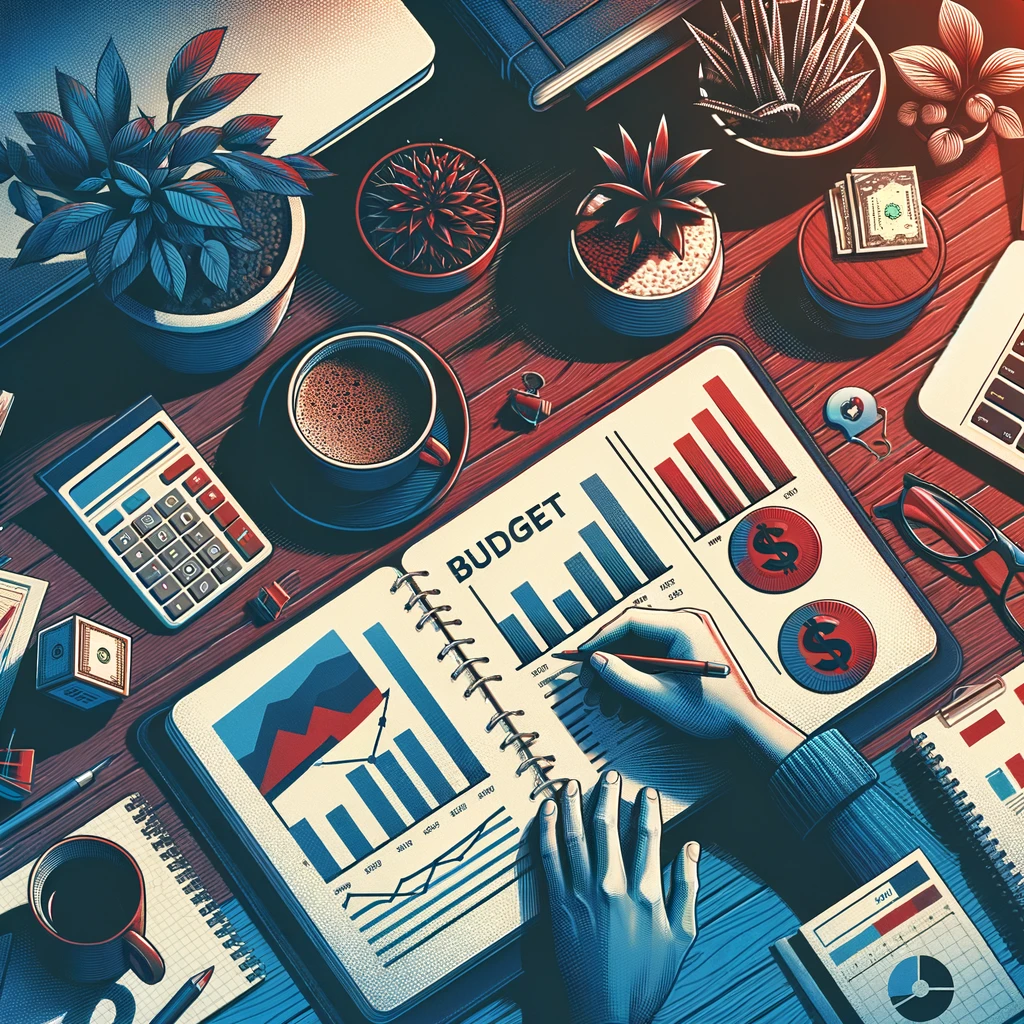Why Budgeting is Crucial for Financial Independence
Budgeting is the foundation of financial independence. It allows you to:
- Track Income and Expenses: Understand where your money is coming from and where it’s going.
- Control Spending: Identify and eliminate unnecessary expenses.
- Increase Savings: Allocate more funds towards savings and investments.
- Achieve Financial Goals: Set and reach short-term and long-term financial milestones.
Steps to Create a Foolproof Budget
1. Assess Your Current Financial Situation
Start by getting a clear picture of your current financial status. This involves:
- Calculating Your Net Worth: List all your assets (savings, investments, property) and liabilities (debts, loans). Subtract liabilities from assets to determine your net worth.
- Tracking Your Expenses: Keep a record of all your expenses for at least a month. Categorize them into fixed (rent, utilities) and variable (groceries, entertainment) expenses.
2. Set Clear Financial Goals
Define your financial objectives. These can be:
- Short-Term Goals: Building an emergency fund, paying off credit card debt, saving for a vacation.
- Long-Term Goals: Saving for a down payment on a house, investing for retirement, achieving financial independence.
3. Choose a Budgeting Method
Select a budgeting method that suits your lifestyle and financial goals. Popular methods include:
- Zero-Based Budgeting: Allocate every dollar of your income to expenses, savings, and debt repayment until you have zero dollars left to budget.
- 50/30/20 Rule: Divide your after-tax income into needs (50%), wants (30%), and savings/debt repayment (20%).
- Envelope System: Use cash for different spending categories and place the money in labeled envelopes. When an envelope is empty, you can’t spend any more in that category until the next month.
4. Create and Stick to Your Budget
Use the chosen method to create your budget. Follow these steps:
- List Your Income: Include all sources of income, such as salary, freelance work, and side hustles.
- Categorize Expenses: Group your expenses into categories based on the chosen budgeting method.
- Allocate Funds: Assign specific amounts to each category based on your financial goals and priorities.
Tools and Apps for Effective Budgeting
Several tools and apps can simplify the budgeting process and help you stay on track:
- Mint: Automatically tracks and categorizes your transactions, helps you create a budget, and provides financial insights.
- YNAB (You Need a Budget): A proactive budgeting app that encourages you to assign every dollar a job and adjust your budget as needed.
- PocketGuard: Shows you how much disposable income you have after accounting for bills, goals, and necessities.
- Goodbudget: An envelope budgeting app that allows you to manage your finances digitally.
Tips for Successful Budgeting
- Be Realistic: Set achievable goals and budget amounts that reflect your actual spending habits.
- Adjust Regularly: Review and adjust your budget monthly to account for changes in income and expenses.
- Prioritize Savings: Treat savings like a fixed expense and contribute to it consistently.
- Avoid Lifestyle Inflation: Resist the urge to increase your spending as your income grows.
- Track Progress: Regularly review your financial progress and celebrate milestones to stay motivated.
Overcoming Common Budgeting Challenges
Dealing with Irregular Income
If your income fluctuates, such as for freelancers or gig workers:
- Estimate Average Income: Calculate your average monthly income based on the past year’s earnings.
- Prioritize Expenses: Focus on essential expenses first and adjust discretionary spending based on income variations.
- Build a Buffer: Maintain a larger emergency fund to cover periods of lower income.
Handling Unexpected Expenses
Unexpected expenses can derail your budget. To mitigate this:
- Create an Emergency Fund: Aim to save at least three to six months’ worth of living expenses.
- Budget for the Unexpected: Allocate a small portion of your budget for miscellaneous or unforeseen expenses.
Staying Motivated and Accountable
Maintaining motivation and accountability is crucial for long-term budgeting success:
- Find a Budgeting Buddy: Partner with a friend or family member to share progress and provide mutual support.
- Use Visual Aids: Create charts or graphs to visualize your financial goals and progress.
- Reward Yourself: Set small rewards for achieving budgeting milestones to stay motivated.
Mastering budgeting is a crucial step towards financial independence. By assessing your financial situation, setting clear goals, choosing the right budgeting method, and leveraging tools and apps, you can create a budget that paves the way to financial freedom. Stay disciplined, adjust as necessary, and keep your eye on the prize. With dedication and the right strategies, financial independence is within your reach.




